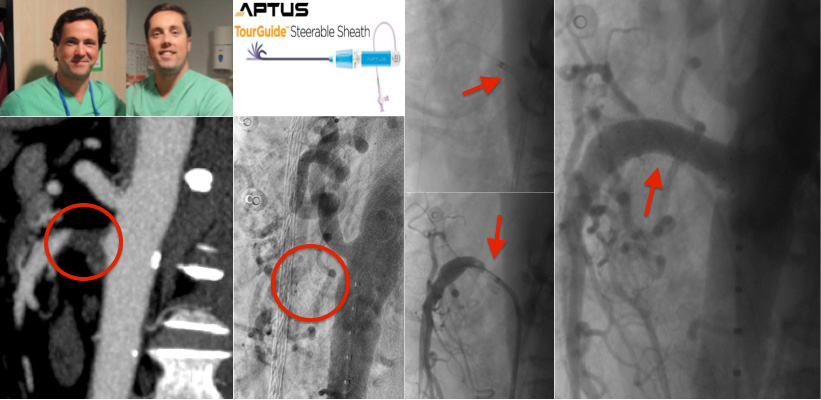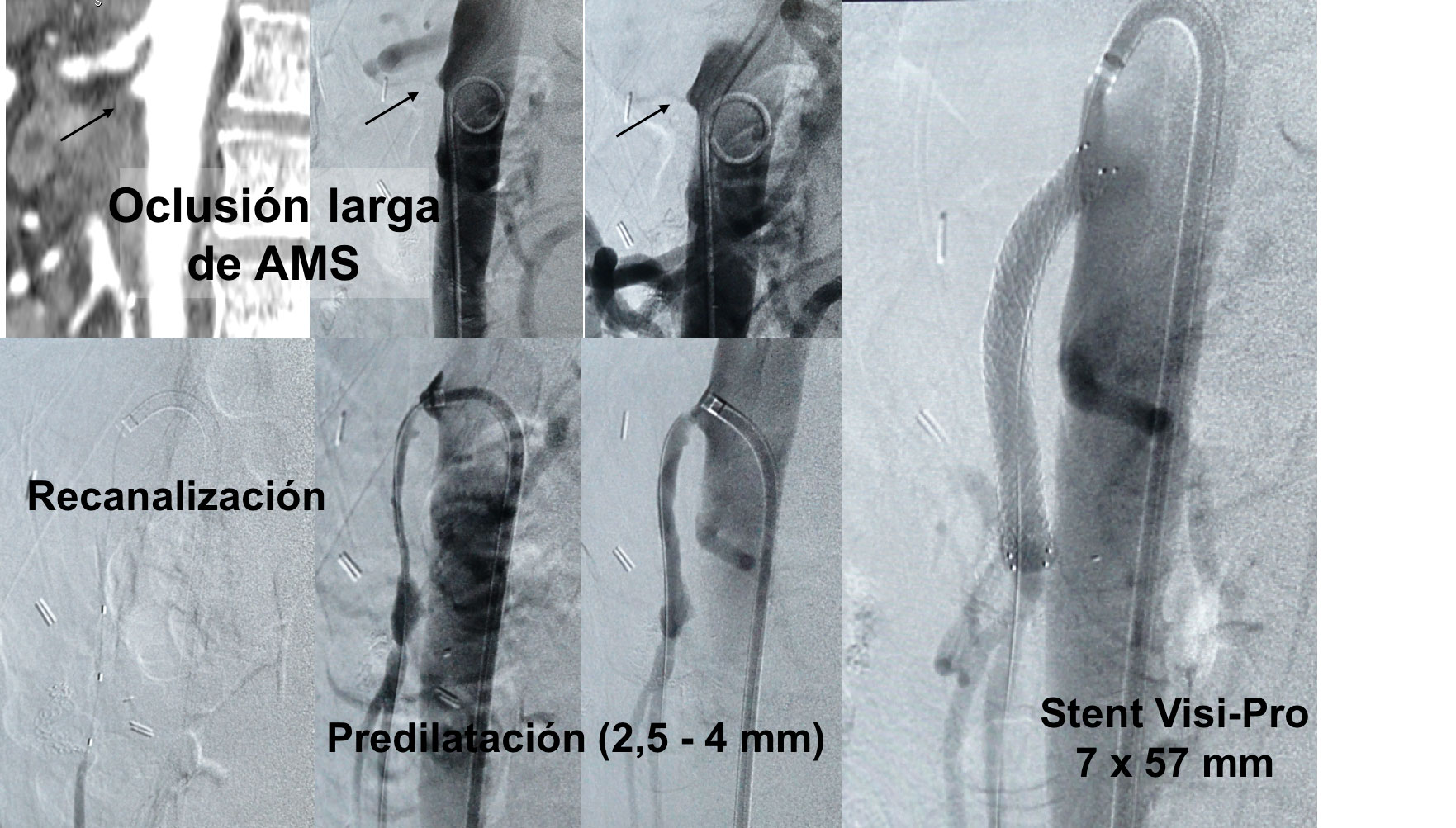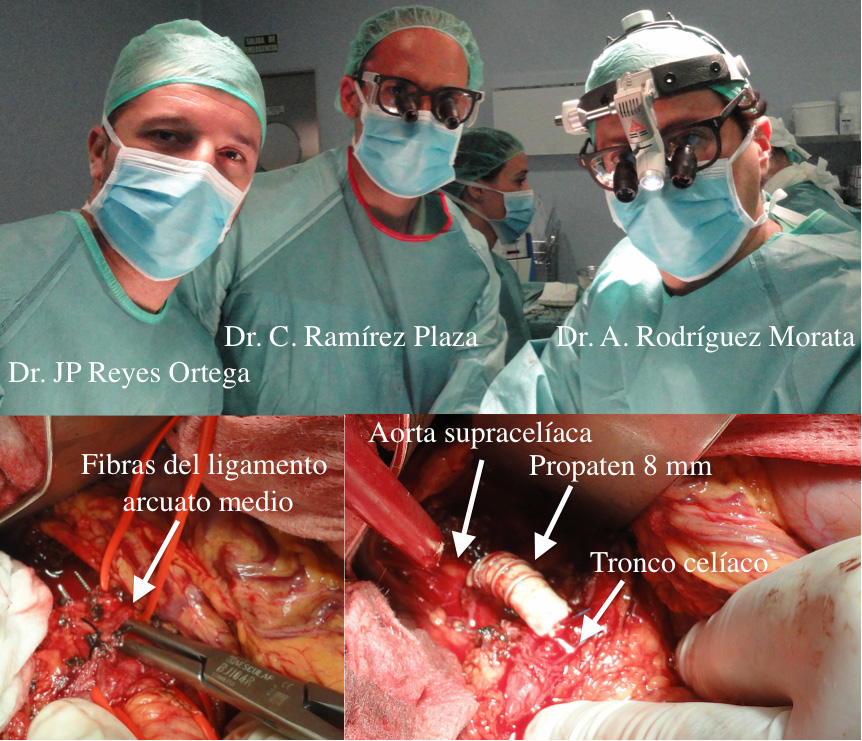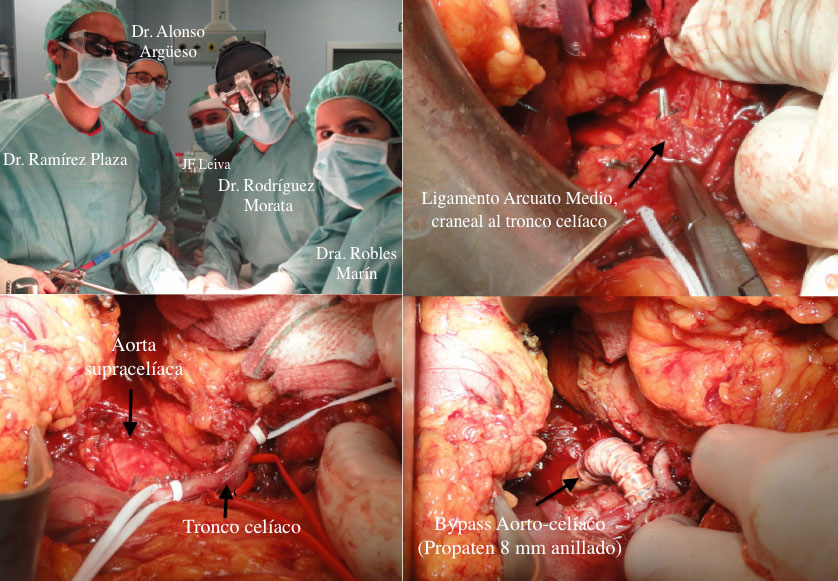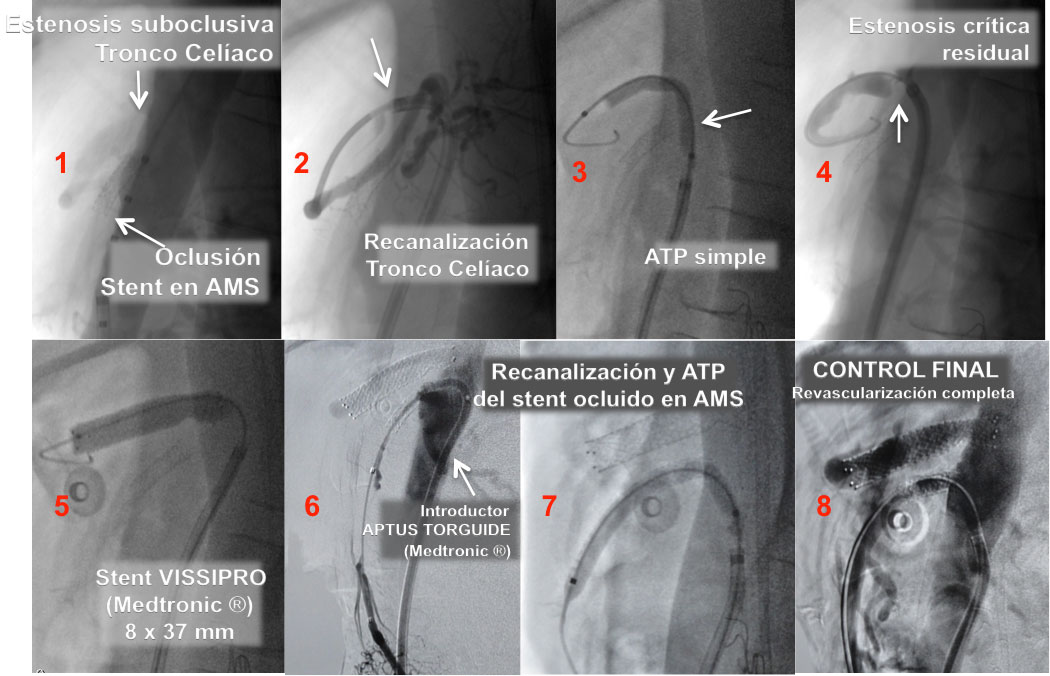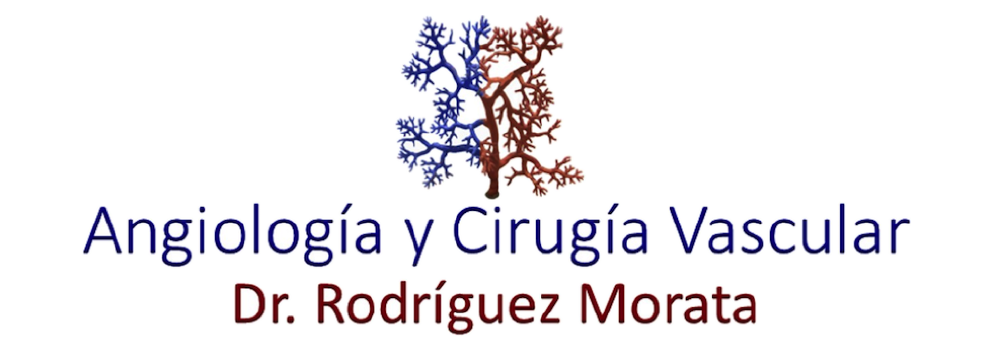This website uses cookies so that we can provide you with the best user experience possible. Cookie information is stored in your browser and performs functions such as recognising you when you return to our website and helping our team to understand which sections of the website you find most interesting and useful.
CHRONIC INTESTINAL ISCHEMIA
Chronic Mesenteric Ischemia
Occluded mesenteric artery recanalisation
Arcuate Ligament Syndrome
Arcuate Ligament Syndrome with celiac axis obstruction
Arcuate Ligament Syndrome with celiac axis obstruction
DESCRIPTION
What is Chronic Intestinal Ischemia?
Chronic intestinal ischemia is what we call when we refer to chronic manifestations which are progressively caused by insufficient blood supply to the bowel from the gastrointestinal arteries (celiac axis, superior and inferior mesenteric artery). These manifestations are weight loss, abdominal pain after meals, fear to eat due to the pain this causes, undernourishment and finally, death by intestinal infarction or undernourishment typical disorders. If that blood supply would not get lost slowly but in an acute, rapid way, by the impact of an embolus or the occurrence of a thrombus in an important gastrointestinal artery, we could be facing an acute intestinal ischemia, with usually fatal course –if urgent treatment is not performed- in 24 – 48 hours.
Which are the causes of Chronic Intestinal Ischemia?
The most common cause is the same one which originates chronic ischemia at limb or coronary artery itself levels: atherosclerosis obliterans. There are other significantly less common causes such as fibromuscular dysplasia, artery dissection, vasculitis (Takayasu Disease), etc.
What is the Arcuate Ligament Syndrome?
It is a very particular cause of chronic intestinal ischemia and it is not due to atherosclerosis or to the previously described pathologies. It is due to the chronic compression of the median arcuate ligament over the celiac axis. This ligament is a thickening with the shape of a real tendon in some muscle fibers of the diaphragm muscle attachments, in both sides of the abdominal aorta, just in the place where the celiac axis is originated. This mentioned ligament is located exactly above this artery and starts comprising it slowly, leading to a chronic injury with obstruction as a common outcome. This compressive syndrome is very uncommon, but must be taken into account amongst the causes of chronic abdominal pain in young people.
The treatment of this syndrome has two aims: surgical decompression of that artery releasing the ligament and the diaphragm adjacent pillars, and revascularisation of the diseased artery, to avoid its obstruction (aorto-celiac bypass or stent in the celiac axis, depending of the case). Treating this syndrome by stent implantation, without previous surgical release, is not usually effective, since compression over the stent commonly ends up breaking it and with thrombosis of the artery.

